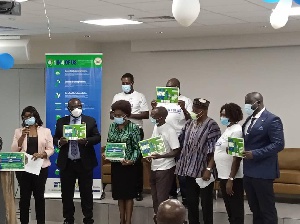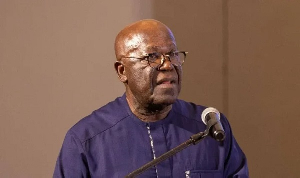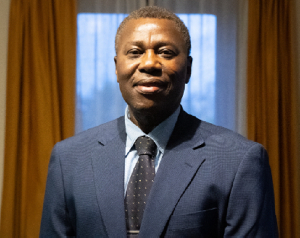There is the need to medically test and know whether one is hypertensive or not, as a key step towards stroke prevention.
This is because while hypertension is a leading cause of stroke, many people living with it are not even aware of it.
Mr. Ad Adams Ebenezer, Executive Director, Stroke Association Support Network (SASNET)-Ghana and Board Director, World Stroke Organisation, told the Ghana News agency in an interview that a key point in stroke prevention was knowing one's risk factors.
He urged people to check their blood pressure levels, exercise regularly, reduce salt intake, avoid excessive alcohol intake, and generally indulge in healthy habits.
Mr. Ad Adams advised against drug abuse and self medication, and described such behaviour as high risk where stroke was concerned.
He appealed to the government to make it a priority to assist persons living with stroke because the condition rendered one quite incapable of taking care of him or herself, which made it impossible for stroke sufferers to be without assistance.
"Stroke sufferers are living in abject poverty. We urge the government to enrol them in the lively hood empowerment programme by Social Welfare," the SASNET Executive Director said.
Mr. Ad Adams also appealed to the government to support the one constituency one rehabilitation center initiative, not only for people living with stroke, but others in similar conditions as well.
Mr. Samuel Sedodo, Chairperson, Persons living with Stroke in Ghana in a speech to mark World Stroke Day, which was marked in October called on government to support SASNET Ghana's Community Life after Stroke Programme, which brings rehabilitation support to the doorsteps of persons living with stroke within the country's Communities.
"Government must as a matter of urgency, partner with SASNET-Ghana's Community Life after Stroke Programme, and enroll stroke survivors unto the programme, as some of my friends are living in absolute poverty within the communities," he said.
Mr. Sedodo also urged the government to implement the Global Stroke Bill of Right which seeks to support and improve the lives of those affected with stroke.
Currently, stroke is the leading cause of disability worldwide, and the second leading cause of death, but almost all strokes can be prevented.
A SASNET report estimates that this year, about 14.5 million people world-wide would have a stroke and out of this, 5.5 million are expected to die.
This year's World Stroke Day was marked in Accra in October.
Themed, "Stroke Prevention, Treatment and Rehabilitation in Ghana, It was jointly organised by the Ministry of Health and SASNET-Ghana.
Stroke happens either when the blood supply to part of your brain is cut off because of a blood clot, or because a brain artery ruptures and leads to a hemorrhage.
Health News of Wednesday, 11 November 2020
Source: GNA













